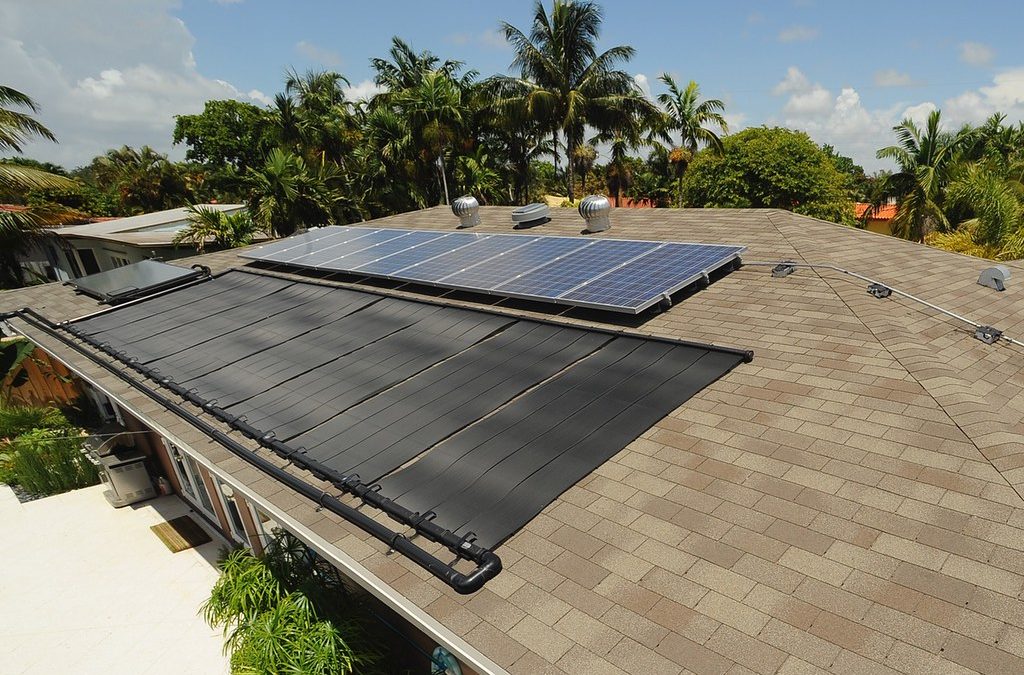You should be aware of all your options when it comes to heating your pool. There are three kinds of pool heaters: gas pool heaters, solar pool heaters, and pool heat pumps. On this page, we’ll focus on what you should be aware of when it comes to solar pool heaters.
Solar pool heaters work by pumping water from the pool to the filter, partially redirecting that water through the solar collectors, which then warm the water up before it goes back to the pool.
All about solar heaters
There are two types of solar heaters: unglazed and glazed collectors. The unglazed collectors consist of rubber or plastic panels that have an ultraviolet inhibitor, and glazed collectors, which are created from copper tubing on an aluminum plate with an iron-tempered glass casing. The unglazed collectors aren’t as sturdy as the glazed collectors are even though they’re made from heavy-duty rubber or plastic. However, unglazed collectors are less costly than glazed ones. Regardless of cost or durability, both types of solar heaters have freeze protection, allowing for use in colder weather areas.
Solar pool heating systems can cost $3,000 to $4,000 for both the purchase and the installation. Solar collectors need a large volume of backyard space. The surface area of the heater needs to be at least 75% of the pool surface area. Whether or not you keep your pool open all year long will partially determine whether or not you need more surface area for your heater (up to 100%). You’ll also need to make certain you have the right size pool pump to fit your solar heating system.
Solar pool heating systems have many advantages: they work excellently for heating pools in warm climates, they don’t contribute to air pollution, they make pool owners’ money back by saving enough energy to cover the installation, they use a free energy source (the sun), they’re inexpensive to operate, and they last 15-20 years.
Solar heater disadvantages
These systems also have some disadvantages: they need a lot of direct sunlight to operate, they heat the pool water quite slowly, they are expensive up front, they take up a lot of backyard space, and they aren’t visually pleasing.
Get familiar with the measurements of your yard space and, if needed, roof space, and keep that in mind when researching various sizes of solar collectors. Also, be informed about your property space and whether or not it’s suitable for a solar pool heater.
If you’re looking for assistance with a pool heater or another pool service such as or cleaning, maintenance, or repair, please visit our Pool Service Locator page.

